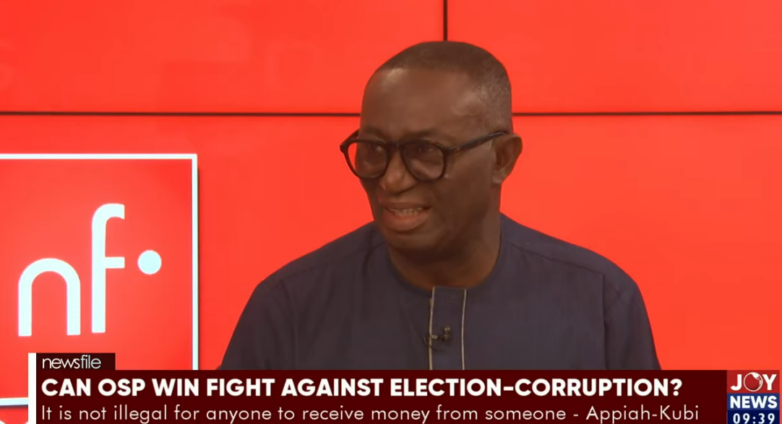Member of Parliament for Asante-Akim North, Andy Appiah-Kubi, raised concerns about a growing trend where government appointees are allegedly employing undisciplined means to oust MPs with whom they are supposed to collaborate.
Mr Appiah-Kubi emphasised the collaborative nature that should exist between MPs and executives, noting that the distribution of appointments, including the selection of CEOs, is meant to facilitate cooperation for the equitable distribution of power.
This comes in the wake of the arrest and subsequent release of National Entrepreneurship and Innovation Programme (NEIP) Chief Executive, Kofi Ofosu Nkansah over accusations of using public funds to fund personal parliamentary aspirations.
Speaking on JoyNews’s Newsfile, the Asante-Akim North MP expressed worry that in some cases, appointees, particularly CEOs, have become more resourceful than MPs while having fewer responsibilities.
According to the Subsidiary Legislation Committee member, some CEOs have access to resources that they use to benefit constituents, bypassing MPs in the process directly.
He suggested that these appointees may attempt to replace MPs, leveraging opportunities to rally support and convey to constituents that the MPs are ineffective in serving their interests.
“They [CEOs] meet [during] monthly meetings, so they become very close friends. So that CEO from your constituency will also nominate somebody to his friend [for example], Scholarship Secretariat CEO who is meeting him every month and then they will put in Asante Akim North ‘Kwasi Mensah’.
"Meanwhile, the MP doesn't know ‘Kwasi Mensah’, it is his friend, another CEO who has brought ‘Kwasi Mensah’… The CEO will come back and tell the constituents that Appiah-Kubi who is your MP cannot do this. I, who is the CEO, have done this and therefore I will serve you better than if I was selected," he said.
This practice, he argued, has the potential to create friction within political parties, especially during internal elections.
The MP warned that if not addressed, such conflicts could become perpetual and hinder the effective functioning of political parties and governance.
"I see this whole indiscipline is within the government and within the parties. We must tackle it. Otherwise, there will be perpetual conflict every year, every year when we have elections," he added.
Latest Stories
-
Boost for education as government commissions 80 projects
9 mins -
NAPO commissions library to honour Atta-Mills’ memory
20 mins -
OmniBSIC Bank champions health and wellness with thriving community walk
22 mins -
Kora Wearables unveils Neo: The Ultimate Smartwatch for Ghana’s tech-savvy and health-conscious users
26 mins -
NDC supports Dampare’s ‘no guns at polling stations’ directive
29 mins -
Police officer interdicted after video of assault goes viral
46 mins -
KNUST’s Prof. Reginald Annan named first African recipient of World Cancer Research Fund
47 mins -
George Twum-Barimah-Adu pledges inclusive cabinet with Minority and Majority leaders
2 hours -
Labourer jailed 5 years for inflicting cutlass wounds on businessman
2 hours -
Parliament urged to fast-track passage of Road Traffic Amendment Bill
2 hours -
Mr Daniel Kofi Asante aka Electrician
2 hours -
Minerals Commission, Solidaridad unveils forum to tackle child labour in mining sector
2 hours -
Election 2024: Engagement with security services productive – NDC
2 hours -
Retain NPP for the good of Ghana – Rebecca Akufo-Addo
2 hours -
‘Let’s work together to improve sanitation, promote health outcome’ – Sector Minister urges
2 hours

